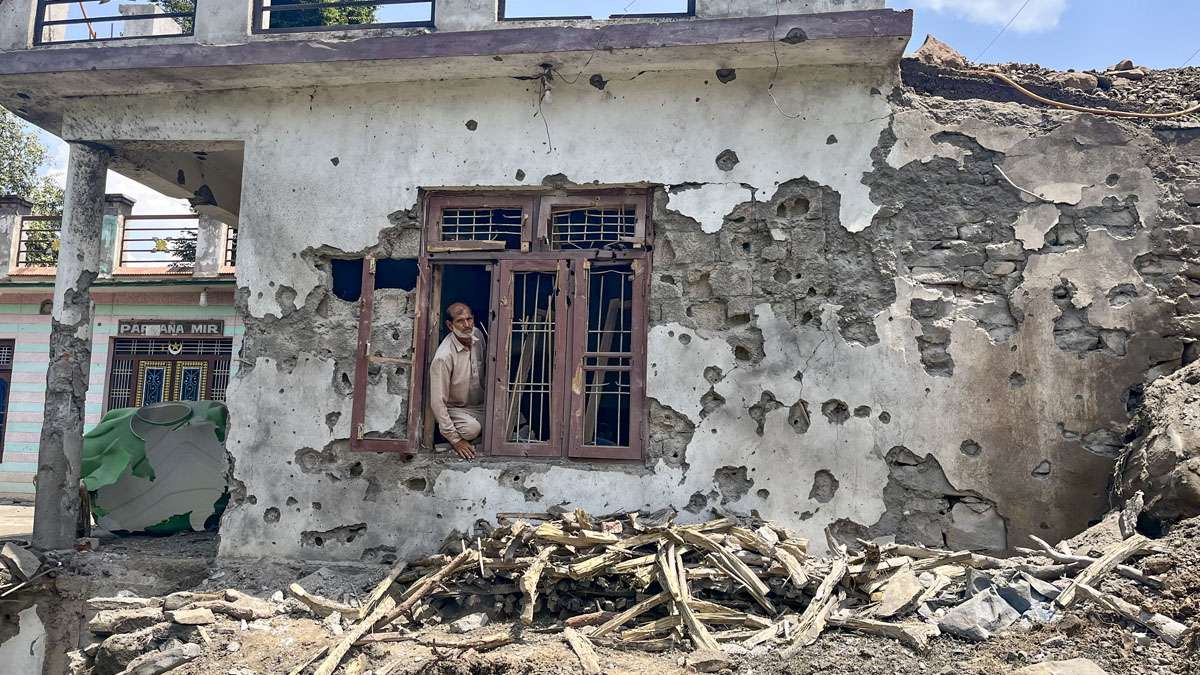The recent escalation in hostilities between India and Pakistan has left a deep impact on the lives of civilians living near the Line of Control (LoC). While cross-border shelling has long been a grim reality for border villages, this time the situation intensified with explosions caused by drones sent from across the border. These attacks didn't just affect areas in Jammu and Kashmir, but also caused huge damage to houses, vehicles, and private property in Punjab's border regions.
As tensions flared up, the use of drones by Pakistan increased notably, adding a new layer of threat. Despite India's success in intercepting and neutralising most of the incoming missiles and drones, several areas still suffered collateral damage. Images and reports from the ground revealed homes with shattered walls, charred vehicles, and families left staring at what was once their shelter.
This raises a pressing question: Do civilians receive compensation when their homes and properties are destroyed during such conflict? If so, how much? Let's know about the compensation policy and other details related to it in this article.
What does the compensation policy say?
In India, the central and state governments jointly run compensation schemes for civilians whose properties get damaged due to cross-border shelling or terrorist attacks — especially in sensitive border states like Jammu and Kashmir. These policies are part of the broader framework of disaster relief and emergency response, led by bodies such as the National Disaster Management Authority (NDMA) and the respective State Disaster Management Authorities (SDMAs). The goal is to offer financial assistance to affected families, helping them begin the process of recovery. However, while compensation is provided, it is often seen as symbolic or minimal, rather than fully covering the losses incurred.
When and how is compensation granted?
There are several criteria for receiving compensation:
- The affected person must be an Indian citizen. Their house must be located in a conflict-affected area.
- The damaged house or vehicle must be owned by the affected person, meaning relevant documents such as property papers, registration certificates, etc., must be in their name.
- The extent of the damage is assessed by local administration or government officials. For this, evidence such as photographs of the damage, police reports, and other supporting documents may need to be submitted.
- The damage must be directly caused by the India-Pakistan conflict or terrorist activities.
What is the amount of compensation?
The compensation amount depends on the nature and extent of the damage. The Jammu and Kashmir government and the central government determine this amount from time to time based on specific guidelines. If the house is partially damaged, an amount ranging from Rs 50,000 to Rs 2 lakh may be granted for repairs. This depends on the assessment of the damage. If a family is forced to relocate temporarily, assistance ranging from Rs 10,000 to Rs 20,000 per month may be provided for rent or temporary accommodation.
Compensation for vehicle damage
If vehicles -- such as cars, motorcycles, or trucks-- are completely destroyed, compensation is determined based on the market value of the vehicle, generally ranging from Rs 50,000 to Rs 5 lakh. For repairs, an amount between Rs 10,000 and Rs 1 lakh may be provided. Additional compensation may be granted for taxis, auto-rickshaws, or other commercial vehicles, as they serve as a source of livelihood for the family.
How is compensation obtained?
The affected person needs to report their loss to the local police station, tehsil office, or district administration by providing evidence and photographs. Then, an FIR needs to be filed, which records the cause and time of the damage. Following this, the local administration, revenue department, or disaster management team conducts an assessment of the damage. The affected individual is also required to submit photographs of the damage, ownership documents, and other supporting evidence. Notably, a formal application must also be submitted to initiate the compensation process.

